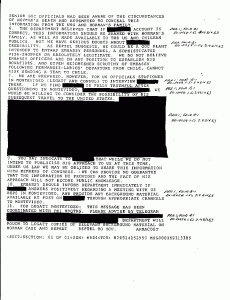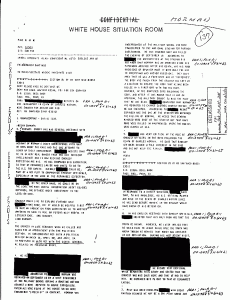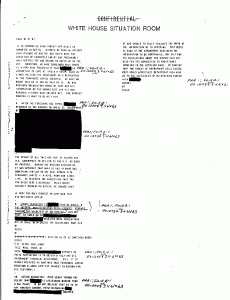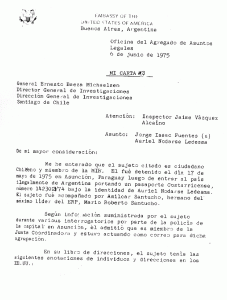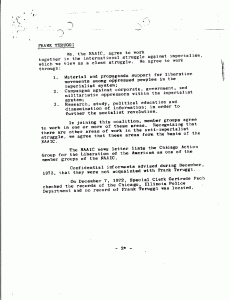U.S. Department of State to Embassy Santiago, «[Deleted] Reports on Death of Charles Horman,» May 14, 1987
In response to the embassy’s previous cable (Document 2), Michael Armacost, the under secretary of state for political affairs, questions the credibility of the informant who provided the account of Horman’s death. Even if the new information proves to be accurate, Armacost sees no new prosecutorial advantage in the new information. Nevertheless, the State Deparment maintains a «fundamental interest» in investigating the deaths of American citizens abroad and «would consider it a very serious matter if senior [Chilean government] officials had been aware of the circumstances of Horman’s death and attempted to conceal this information from the [U.S. government] and Horman’s family.» Armacost directs that the informant be interviewed by State Department officials stationed in Uruguay to determine his credibility.

